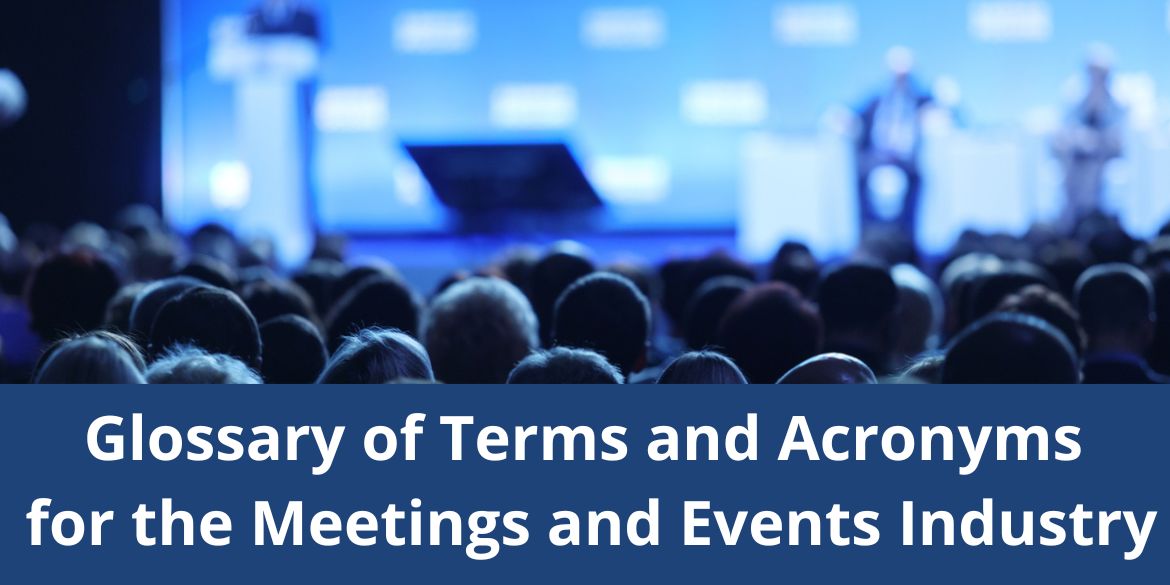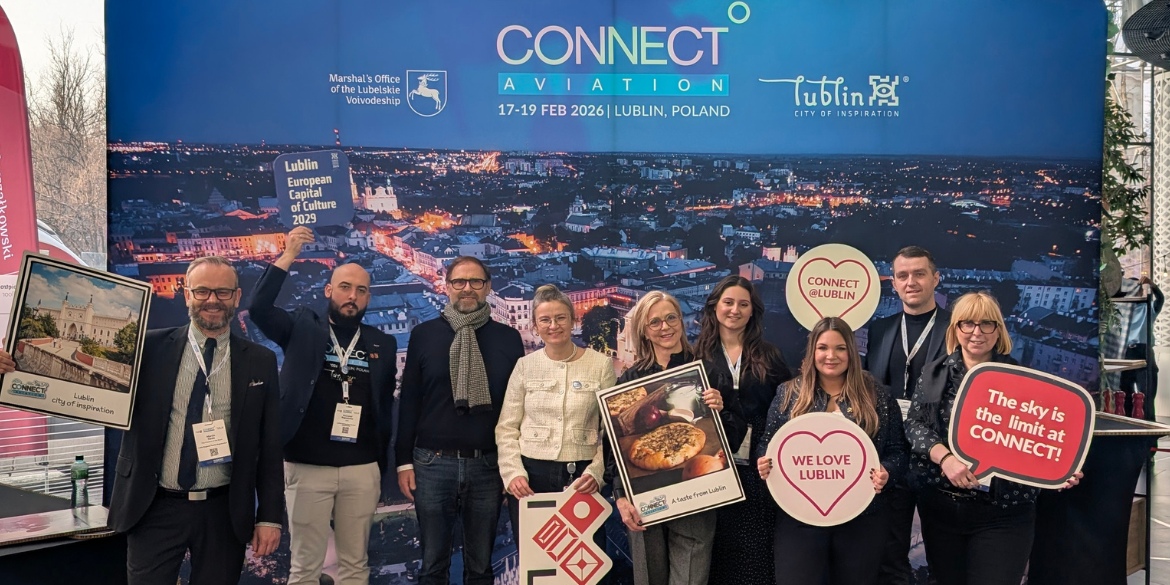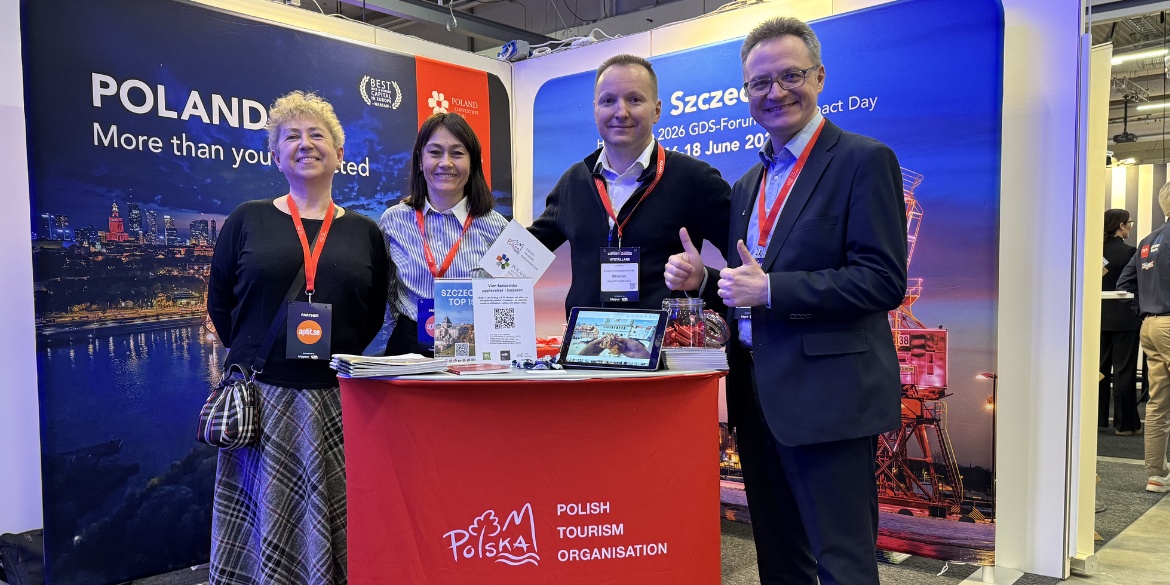The article presented is a glossary of terms and acronyms related to the meetings and events industry. Developed by the Poland Convention Bureau at the Polish Tourism Organisation (PTO), this glossary is intended to facilitate communication and underline the sector’s importance as a driver of social and economic development. The collection includes definitions from conference organisation, business tourism and destination marketing, and also describes numerous organisations and initiatives operating both domestically and internationally. The glossary forms part of the publication Report: Meetings and Events Industry in Poland 2025.
Terms and Definitions
- AIPC (International Association of Convention Centres) – an association representing convention and exhibition centre management worldwide.
- Association Meeting – a convention, congress, conference or assembly at which members of a given association meet. Accompanying persons may also attend. The planning period is long, with many factors influencing venue selection. Participants typically meet for several days to discuss specific issues and take part in numerous educational sessions.
- Congress Ambassador – a representative from the worlds of science, culture, sport, business or other professional communities; in particular, a person holding various functions within associations and international organisations, a regular participant in international scientific, cultural and economic exchange, and an expert in their field.
- Bid Book – a professional application document prepared by a convention bureau or venue in response to a request for proposal to host a congress, conference or other business event. It contains detailed information about the city, conference, hotel and transport infrastructure, as well as institutional support, the accompanying programme and arguments in favour of the location. It is one of the key elements of the bidding process.
- Bidding – the application process through which cities, regions or organisations submit their candidacies to host an event (e.g. a congress, conference or association meeting). Bidding may be conducted by convention bureaux, universities, associations or public–private partnerships. Typical elements include preparation of a bid book, presentation of the offer, site inspection and support from local stakeholders.
- Bleisure – a blend of business and leisure, denoting the trend of combining business travel with leisure time. A participant in a business event (e.g. a conference, congress or trade fair) extends their stay for recreation, sightseeing or rest. Bleisure lengthens the average length of stay and increases expenditure in the destination. It is increasingly included in city and regional promotion strategies as a factor enhancing attractiveness.
- Break‑out Room – a smaller meeting room, usually located near the main conference hall, intended for workshops, thematic sessions or meetings in sub‑groups (i.e. break‑out sessions). It is an important component of many conference and congress programmes. Large events may require a dozen or more such rooms.
- Carbon Neutral Event – an event where greenhouse gas emissions are measured, reduced and offset to achieve a net-zero carbon footprint.
- CEM (Certified in Exhibition Management) – a global professional designation offered by the International Association of Exhibitions and Events (IAEE).
- CMP (Certified Meeting Professional) – an international certification programme administered by the Events Industry Council (EIC), recognising expertise in meeting management.
- Congress – a meeting of members of an association or organisation attended by a large number of individual delegates to discuss specific issues. A congress usually lasts several days and includes numerous educational sessions.
- Conference – (1) A meeting designed for problem‑solving, discussion, consultation or education. (2) A meeting associated with education, exchange of views and the generation of new ideas within a thematically connected group. Conferences are usually short, organised without strictly defined time constraints, and linked to achieving a set objective. They are smaller and shorter than congresses.
- Congress Venues – independent venues, conference centres, unique venues (theatres, philharmonic halls, unconventional spaces) and hotels with substantial conference facilities to which the organiser has applied directly for event delivery.
- Convention Bureau (Convention and Visitors Bureau, CVB) – a not‑for‑profit organisation representing destinations (country, region, city) and providing professional support to organisers of meetings and business events, including congresses, conferences, incentive travel and corporate events. Globally, CVBs generally operate in three forms: public, public–private or private entities. They are usually funded through membership fees, taxes and local government grants. CVB membership typically comprises businesses supplying products and services to the meetings industry.
- Destination Marketing Organisation (DMO) – organisations that play a key role in attracting meetings and events to the countries, cities and regions they represent. Destination marketing focused on winning meetings and events can be delivered at various administrative levels. Institutions that typically handle this are referred to as Convention Bureaux (Convention and Visitors Bureaux, CVB) or other organisations (e.g. tourism offices or departments within city or regional authorities, Local Tourism Organisations, or Regional Tourism Organisations). Funding may be public, private or mixed.
- Destination Management Company (DMC) – a local service provider for meetings and business events responsible, among other things, for planning, delivery and reconciliation of a meeting or event. Often also responsible for destination promotion and for organising social events, technical production, recreational activities, registration and entertainment.
- Events Industry Council (EIC) – a global federation of over 30 member organisations representing the events industry, responsible for standards like the CMP programme and EIC Sustainability Standards.
- Event – a corporate event involving a company’s employees with an integrative, training, motivational or informational character; bringing together employees and/or distributors, and often invited guests; frequently combined with an attractive tourism and leisure programme, where travel, accommodation and meal costs are covered by the employer.
- Event Agency – a company specialising in planning and executing events on behalf of clients, from creative concept to logistics.
- Event Legacy – the impact of an event that extends beyond its immediate time and place, leaving long‑term benefits or lasting change for participants, organisers, the local community, the industry or the environment. Legacy may be social, economic, educational, cultural or environmental and is often planned strategically at the preparation stage.
- Eventprofs Creators Lab (#EventprofsLAB, Laboratorium Twórców in Polish) – an educational and promotional project of the Polish Tourism Organisation aimed at representatives of the Polish meetings industry. Its purpose is to develop competencies, innovation and collaboration through training, workshops and creating engaging online content promoting Poland.
- Event Marketing – the use of live and virtual events as a marketing channel to engage audiences, build brand awareness and drive business results.
- ESG (Environmental, Social, and Governance) – a framework used by organisations to assess and communicate their environmental, social and governance performance; increasingly important in the event industry.
- Global Association of the Exhibition Industry (UFI) – an international exhibition industry association founded in 1925, headquartered in Paris. It brings together more than 900 members from over 90 countries: organisers, venue operators and service providers. UFI promotes high-quality standards (UFI Approved Event), professionalisation of the sector, and conducts research, analysis and education to support development of the global exhibition market. It also organises annual congresses and regional forums. https://www.ufi.org.
- Global Destination Sustainability Movement (GDS Movement) – an international initiative established in 2016 to support destinations in sustainable development through benchmarking, strategic advisory and building a global community of change leaders in tourism and the MICE industry. The movement’s key tool is the GDS‑Index. Projects delivered under the GDS Movement include the GDS‑Forum, GDS Academy and GDS‑Awards. https://www.gds.earth.
- GDS‑Index (Global Destination Sustainability Index) – an assessment of the sustainable development of leisure and business destinations across four categories using 76 indicators. Joining the index is demanding and involves a comprehensive evaluation of a city’s actions in environmental protection, social policy and engagement of local stakeholders such as hotels, conference venues and DMOs. The GDS‑Index also analyses destination management strategies, including the implementation of innovative solutions and progress reporting. Cities worldwide compete for a place in this ranking, with Scandinavian cities among the leaders. https://www.gds.earth/index.
- Global Meetings Industry Day (GMID) – an annual international celebration of the meetings and business events industry, held worldwide on the first Thursday in April. GMID highlights the economic, social and cultural significance of meetings, congresses, conferences, trade fairs, corporate events and incentive travel. The day features educational events, debates and campaigns, offering an opportunity for collective promotion and community building under the slogan “Meetings Matter”.
- Global Sustainable Tourism Council (GSTC) – a non‑profit organisation established on the initiative of, among others, UNEP and UNWTO, headquartered in Washington, D.C. It brings together experts, institutions and organisations from around the world working to implement responsible practices in tourism and the meetings industry. The GSTC develops and promotes the GSTC Criteria – a set of global sustainable tourism standards for destinations, accommodation providers and tour operators. https://www.gstc.org.
- GSTC Sustainable Tourism Course – official GSTC certification training aimed at tourism professionals, including destination representatives, venues, tour operators and public administration. Upon completing the course and passing the exam, participants receive the GSTC Sustainable Tourism certificate, confirming knowledge of sustainable development principles in tourism.
- Hosted Buyer – an invited participant at a trade fair or industry meeting; a decision‑maker representing a corporation, event agency, ITC or association that organises events. Participation is financially supported by the organiser in return for attending pre‑scheduled B2B meetings with exhibitors or other participants. Hosted buyer programmes are used at events such as IMEX, IBTM World and Spotlight on Poland.
- Hosted Buyer Programme – (broader definition) a structured initiative matching pre-qualified buyers with suppliers through scheduled meetings at trade shows.
- IAPCO (International Association of Professional Congress Organisers) – a global association of leading PCOs dedicated to professional standards in conference organisation.
- IBTM World – an international trade show for the meetings and events industry held annually in November at Fira Barcelona Gran Via, Spain. Poland’s participation is coordinated by the Poland Convention Bureau at POT, which organises the Polish National Stand. https://www.ibtmworld.com
- IMEX America – a North American meetings and events industry trade show held annually in October at the Mandalay Bay Convention Center in Las Vegas. The Poland Convention Bureau at POT coordinates Poland’s participation by organising the Polish National Stand. https://imexamerica.com
- IMEX Frankfurt – an international trade show held annually in May at Messe Frankfurt, Germany. The Poland Convention Bureau at POT coordinates Poland’s participation by organising the Polish National Stand. https://imex-frankfurt.com
- Incentive Travel/Tourism – a form of non‑financial reward and motivational tool involving a trip funded by an employer or commissioning company for employees, sales partners, distributors or key clients. The purpose of incentive travel is to reward achievement of specific objectives, increase loyalty, build relationships and boost participant engagement. It is often distinguished by an exceptional and innovative programme.
- International Congress and Convention Association (ICCA) – an organisation headquartered in Amsterdam, established in 1963. One of its initial goals was to provide practical guidance on operating in the international meetings market. ICCA is one of the most important organisations related to the meetings industry; it brings together about 1,000 members from various sectors in nearly 100 countries: convention bureaux, transport, accommodation, catering and services. It regularly publishes ICCA Globe Watch Business Analytics – Country and City Rankings. The association’s flagship event is the ICCA Congress. https://www.iccaworld.org
- Key Opinion Leader (KOL) – an opinion leader and expert in a given field who enjoys authority within scientific, professional or other communities. Their recommendations and professional activity influence others’ decisions, including the choice of destination or venue. In the meetings industry context, a KOL may support the bidding process, contribute to winning an event and act as a promoter of a country or city internationally. An opinion leader may be a Congress Ambassador, media representative, B2B influencer or online content creator.
- Local AKP Clubs – structures delivering the objectives of the Polish Congress Ambassadors Programme at the local level, operating within activities run by convention bureaux that support the local academic community and industry associations in bidding for important international events. Club members include Ambassadors nominated in the national programme and those active locally without nomination (so‑called potential AKP members).
- Meeting Design – a strategic approach to planning events that integrates objectives, participant engagement, learning methods and experience design. Focuses on how event structure and content support measurable outcomes.
- Meetings Industry – the part of the economy concerned with organising, promoting and managing meetings and events, including congresses, conferences, trade fairs, corporate events and incentive travel.
Poster Session – a form of scientific or industry presentation involving the display of research results or concepts on boards/posters. Congress or conference participants have the opportunity to review the content individually and speak with the authors. - Meeting Professionals International (MPI) – one of the largest associations of meetings and events professionals, established in 1972 and headquartered in Dallas, bringing together a community of around 60,000 people, including approximately 15,000 active members. A global community working to develop the meetings and business events industry: congresses, conferences and incentive travel. In Poland, there is a national chapter – MPI Poland Chapter. https://www.mpi.org.
- MICE Supplier – a company providing products or services to the meetings and events sector, including venues, hotels, AV providers, caterers and transport operators.
- National Support Programme for the Meetings Industry – a project delivered by the Polish Tourism Organisation in cooperation with the national carrier PLL LOT, aimed at strengthening Poland’s competitiveness as a destination for international meetings and business events. The programme offers, among other things, complimentary or preferential LOT Polish Airlines tickets for key decision‑makers, representatives of international associations and foreign partners who contribute to winning events for Poland.
- Poland Convention Bureau – the Meetings and Events Bureau operating within the Polish Tourism Organisation, responsible for promoting Poland as an attractive destination for meetings and business events. It organises the AKP Programme, supports the sector through two programmes: the National Support Programme for the Meetings Industry and the Promotional Support Programme for Meetings and Events, runs the educational Creators’ Laboratory project, delivers recommendation programmes for Convention Bureaux, Professional Congress Organisers and Incentive Travel Companies, and publishes the cyclical Report: Meetings and Events Industry in Poland. The Bureau’s official hashtag is #PolandCVB. https://www.pot.gov.pl/pl/pcb/news and https://meetings.poland.travel.
- Professional Convention Management Association (PCMA) – an international association founded in 1956, headquartered in Chicago with a European office in London, and a platform for the business events industry. It is the world’s largest community for business event strategists, offering executive‑level education, networking and market insights. PCMA brings together more than 8,000 members and a global audience of over 100,000 industry stakeholders in North America, APAC, EMEA and LATAM, with members in 59 countries. https://www.pcma.org.
- PLL LOT – LOT Polish Airlines – Poland’s national carrier, operating continuously since 1 January 1929, offering travellers from around the world comfort and safety aboard one of the most modern fleets globally. As a member of the Star Alliance, LOT provides fast and convenient connections from the farthest corners of the globe to Warsaw and other regional Polish airports. Thanks to a well‑designed route network, LOT is often the first choice for passengers coming to Poland for leisure and business alike. Quick and efficient transfers, conveniently scheduled flight times and a commitment to environmental sustainability help LOT strengthen its position in Central and Eastern Europe. https://www.lot.com.
- PTO – Polish Tourism Organisation – a government organisation established under the Act of 25 June 1999 on the Polish Tourism Organisation. POT commenced operations on 1 January 2000. It reports to the minister responsible for tourism – currently the Minister of Sport and Tourism. POT is the only organisation of its rank in Poland with a nationwide remit that creates conditions for cooperation between governmental administration, local government and organisations bringing together entrepreneurs in tourism, as well as associations operating in this area. Its objective is to promote Poland as an attractive, modern destination with high service standards. It carries out activities to promote and develop Polish tourism both domestically and abroad. https://www.pot.gov.pl.
- Press Trip – a study tour dedicated to journalists and representatives of traditional and online media, organised to promote a destination, event or conference venue. Participants produce coverage, articles, videos or other promotional formats to enhance the location’s visibility.
- Polish Congress Ambassadors Programme – in operation since 1998 and currently bringing together a group of over 350 Ambassadors, i.e. individuals who have helped to attract business events to Poland through active promotion of the country and engagement in international associations. The Programme is organised by the Polish Tourism Organisation (Poland Convention Bureau) and the NGO Conferences and Congresses in Poland Association. Under the Programme, the AKP Programme Chapter, elected every three years, annually selects twenty new Polish Congress Ambassadors and three Patrons of Polish Congresses (event sponsors). Statuettes are presented during the ceremonial Gala of the Polish Congress Ambassadors – an event held on a rotating basis in different Polish cities. https://ambasadorkongresow.pl.
Professional Congress Organiser (PCO) – a service provider capable of planning, preparing and delivering a business meeting, including, among others, a congress or conference. - Promotional Support Programme for Meetings and Events – a project delivered by the Polish Tourism Organisation aimed at acquiring and promoting events held in Poland through marketing, expert and media support. The programme is addressed to organisers of conferences, congresses and other events taking place in Poland.
- Recommendation Certificates for Convention Bureaux, PCOs and ITCs – a recommendation system of the Polish Tourism Organisation, run by the Poland Convention Bureau, confirming the service quality and professionalism of convention bureaux (CBs), professional congress organisers (PCOs) and incentive travel companies (ITCs). The aim is to promote vetted partners in Poland and abroad. Certificates are awarded for two years during an event organised by the Poland Convention Bureau at PTO.
- Site Inspection – a visit by an event organiser (e.g. a PCO, association or corporation) to the destination, conference venues, hotels and other sites. Its purpose is to assess the offer and conditions before making a location decision.
- Social Legacy / Community Impact – long-term social benefits created by hosting an event, such as volunteering, inclusion or education programmes.
- SMERF (Social, Military, Educational, Religious, Fraternal) – an acronym referring to meetings and events of a social, military, educational, religious and fraternal/association nature.
- Society of Incentive and Travel Excellence (SITE) – a non‑profit organisation founded in 1973 and headquartered in Chicago. Its primary mission is to strengthen the position of incentive travel globally. More than 3,100 members in 90 countries are grouped into 29 chapters. Members include professional congress organisers, meetings management companies, hotel sector representatives, trade publishers, airlines and destination marketing organisations. In Poland, the association operates a national chapter – SITE Poland. https://siteglobal.com.
- Spotlight on Poland – a cyclical project delivered by the Poland Convention Bureau at PTO with SKKP, comprising a conference and a fam trip for international hosted buyers. It aims to promote Poland as a competitive and professional MICE destination through joint exposure of Polish partners, media activity and networking. The event is held on a rotating basis in various Polish cities. https://spotlightonpoland.pl.
- Strategic Alliance of the National Convention Bureaux of Europe (SANCBE) – a network of 29 national convention bureaux promoting destinations across Europe. Its objectives are to strengthen Europe’s position as a leading destination for business events; support the exchange of experience, knowledge‑sharing and joint research projects; and standardise and promote best practice in strategy, innovation and sustainability within the meetings industry. https://convention-europe.com.
- Union of International Associations (UIA) – a research institute and documentation centre based in Brussels, founded in 1907 by pioneers of information science. In addition to research activities, the UIA publishes the International Congress Calendar, the Yearbook of International Organisations and the cyclical International Meetings Statistics Report. The Polish Tourism Organisation is the only Polish member of the UIA. https://uia.org.
- World Tourism Organisation (UNWTO) – an international organisation established in 1975 and, since 2003, a specialised agency of the UN. Its objective is to support the development of tourism as an important factor in socio‑economic growth and international cooperation. Its membership (as of 2006) includes 130 countries, including Poland (since 1976). Headquarters in Madrid. https://www.unwto.org.
- Zero‑waste Event – an event planned and delivered in line with the principles of waste minimisation and maximum use of resources within a circular model. The goal is to reduce negative environmental impact through, among other measures, eliminating single-use plastics, using reusable and compostable materials, optimising energy consumption, reducing printed materials, promoting low-emission transport, and responsible catering management (including local and seasonal products and minimising food waste). Organising zero‑waste events aligns with global sustainability standards and supports ESG strategies in the meetings and events sector.
Additional terms related to the Polish MICE market
- IGHP – Chamber of Commerce of the Polish Hotel Industry – a national business organisation operating since 2003, representing the hotel and foodservice sectors in Poland. It has more than 525 members and over 630 hotels and lodging facilities. IGHP is headquartered in Warsaw and operates through 14 regions, connecting hoteliers for integration and exchange of experience. https://www.ighp.pl.
- PIPT – Polish Chamber of Exhibition Industry – a nationwide chamber of commerce operating since 2006 (continuing the activity of the Polish Trade Fair Corporation founded in 1993), representing the interests of the exhibition industry in Poland. It brings together major organisers, venue operators, stand designers and builders, technical, logistics and IT service providers, as well as companies offering marketing and media support for trade fair events. https://polfair.pl.
- SKKP – Conferences and Congresses in Poland Association – one of the organisers of the AKP Programme. A nationwide platform for cooperation among professionals associated with the meetings industry and the organiser of multiple initiatives and events. Established in 1998 as a way to consolidate cooperation among communities interested in the development of business tourism in Poland. https://www.skkp.org.pl
- SBE – Event Industry Association – a nationwide association bringing together organisers, event agencies, venue representatives, organisations and subcontractors of event services. It works towards professionalisation, popularisation of the sector and the development of common operating standards. Organiser of the Event Biznes Nowe Horyzonty conference. https://sbe.org.pl.
- SOIT – Association of Incentive Travel Organisers – an association of professional incentive travel agencies. Operating since 2009, it works to raise quality, safety and ethics standards in the organisation of incentive travel. Since 2014, SOIT has conducted a market study – the SOIT Barometer. https://soit.net.pl.
- TUgether – Council of the Meetings and Events Industry “TUgether” – established in July 2020 as an initiative of industry leaders, bringing together associations and organisations. It serves as the sector’s collective representative body vis‑à‑vis public administration, conducting strategic and educational activities and institutional dialogue. https://rpsiw.pl.




